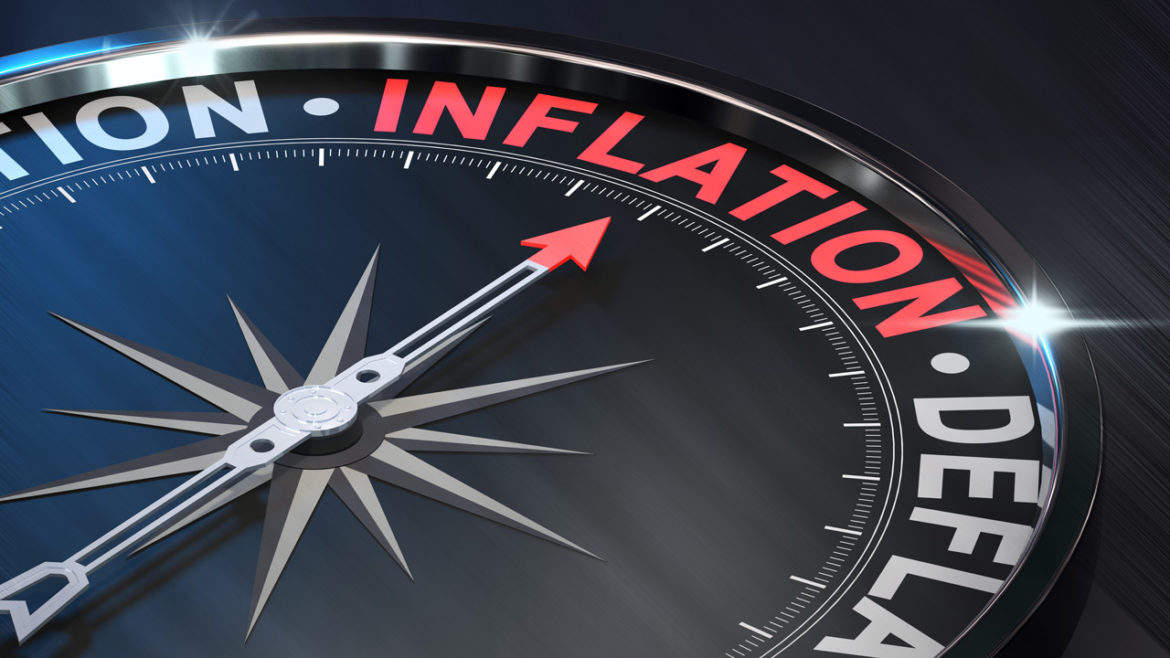Gold has all the potential to go unprecedentedly high. But silver will be gold on
Site:
Precious metals news
Oct 27, 2021 - 12:55:40 PDT
Failure on the part of the Fed to toss its stubbornly-held “transitory” inflation narrative and act more decisively to rein in persistently high price pressures raises the likelihood the central bank will need to slam on the brakes of easy money policies much more forcefully down the road, risking avoidably severe disruption to domestic and global... Mohamed El-Erian.
Gold prices edged higher in seesaw trading on Wednesday, buoyed by a fall in U.S. bond yields and a softer dollar, although strong risk appetite in equity markets kept bullion's gains in check.
The GDPNow estimate of GDP is 0.2%. The Bloomberg Econoday consensus is 2.7%.
 Voters in These 22 States Could See Direct Tax Hikes Due to Inflation, New Analysis Warns
Voters in These 22 States Could See Direct Tax Hikes Due to Inflation, New Analysis WarnsOct 27, 2021 - 11:27:18 PDT
Is your state one of them?
Get a front-row seat to Jeff Clark’s 41-minute keynote presentation from the 2021 Silver Symposium.
Oct 27, 2021 - 10:02:05 PDT
Ultimately though, we think central banks will prefer to ease off the accelerator rather than slam on the breaks. Since being too abrupt risks a correction in asset prices and a recession, being behind the curve allows themselves more time for inflationary bottlenecks to perhaps ease and looks a more palatable choice.
Score one for freedom and privacy (for now) as CNBC's Kayla Tausche reports that Democratic lawmakers have dropped their plans for the dragnet-style IRS surveillance across Americans' bank accounts.
The Biden Administration’s tax addicts just got their wish as 136 nations agreed to a new international tax deal that’s nothing but bad news for U.S. taxpayers. Steve Forbes on the reality behind this stealth-tax-increase move and on who would be hit the hardest by it.
For many decades the United States and almost every other country in the world have been haunted by fiscal deficits; however, normal people do not seem to realize how it can affect their lives and their well-being. Many people around the world simply do not care about how the fiscal policy of their respective country is and the governments use that lack of interest...
It's not often that a member of the Federal Reserve’s inner circle ditches Fedspeak in favor of something more honest. Governor Christopher J. Waller did exactly that, in his speech titled: The Economic Outlook and a Cautionary Tale on “Idiosyncratic” Price Changes and Inflation, where the latest addition to the Fed’s Board talked about manipulation of (price) inflation data.
Brazil’s unfolding foreign exchange and budget crisis might offer a useful cautionary tale to United States economic policymakers. It might alert them to the economic risks associated with an unhealthy combination of highly compromised public finances and an uncomfortably high level of inflation. It might also throw cold water on the current Modern Monetary Theory...
Oct 27, 2021 - 08:54:42 PDT
There was a time when the Federal Reserve believed that honest money—i.e., a stable price level— was essential for achieving full employment. Today, retired Fed officials are recommending that the Federal Open Market Committee (FOMC) target 3-percent inflation. They argue that a 3 percent inflation target would limit the risk of deflation and create large...
In the latest period, M2 increased by $163B and sits just shy of $21T. This represents a 0.78% MoM increase which annualizes to 9.8%. This is below last month's rise of $254B and last September’s rise of $223B.
"Truly limited government involves limiting the discretion of the Federal Reserve. A solution involves imposing binding rules on both the Fed and Congress. The rules must specifically restrict the creation of 'liquidity and credit except in specific ways that are general, predictable, and...
Oct 27, 2021 - 08:07:30 PDT
Imposing a wealth tax may not even be among the enumerated powers of Congress.
 Will The 'Billionaire Tax' Collapse The Market (And Other Anti-Fragile Talebian Takes)
Will The 'Billionaire Tax' Collapse The Market (And Other Anti-Fragile Talebian Takes)Oct 27, 2021 - 07:57:47 PDT
On Twitter, Taleb notes of the White House’s proposed wealth tax on billionaires: “Consider that if we established a capital gain tax on *large* unrealized earnings (as a “draw” against future realization) we could pretty much close the deficit. At 45% Fed+State, just half the owners of Tesla would owe half a trillion! Unless, of course, it collapses the market.”...
Australia became the latest battleground for market bets that central banks will need to tighten quicker than planned after its core inflation surged back to the Reserve Bank’s target, driving a sell-off in bonds.
The U.S. trade deficit in goods surged in September as exports tumbled, suggesting trade probably weighed on economic growth again in the third quarter.
 Plunge In Export Shipments Sparks US GDP Downgrades, Economy On Verge Of Contraction
Plunge In Export Shipments Sparks US GDP Downgrades, Economy On Verge Of ContractionOct 27, 2021 - 07:35:29 PDT
US economic data took a double hit this morning with a contraction in durable goods orders and perhaps even more notably, the US merchandise-trade deficit widened to a fresh record in September as exports retreated for the first time in seven months.
Federal Reserve officials face a ticking clock in their ability to ignore high inflation and are now navigating between their own senses of patience and risk, and a U.S. economy stymied by tangled supply chains, slow hiring and strong consumer demand.
























